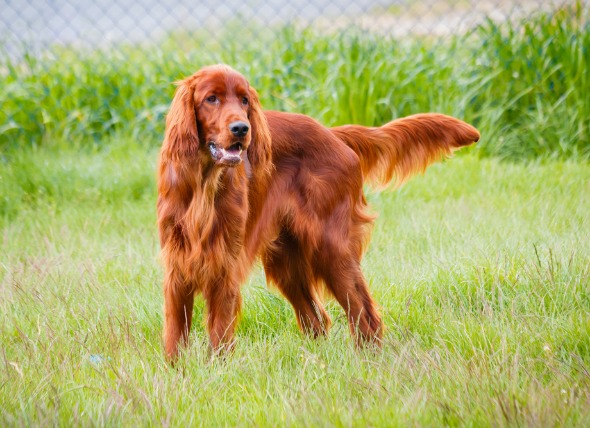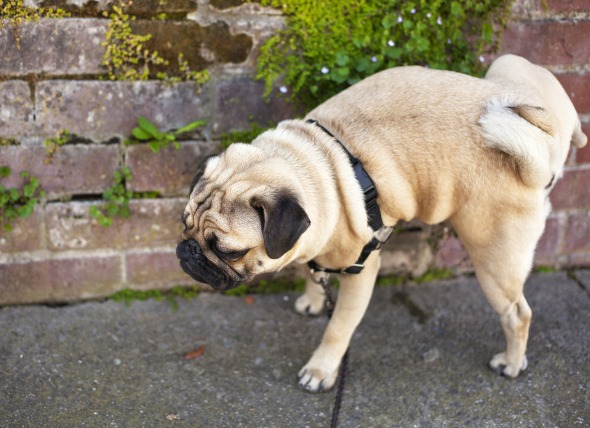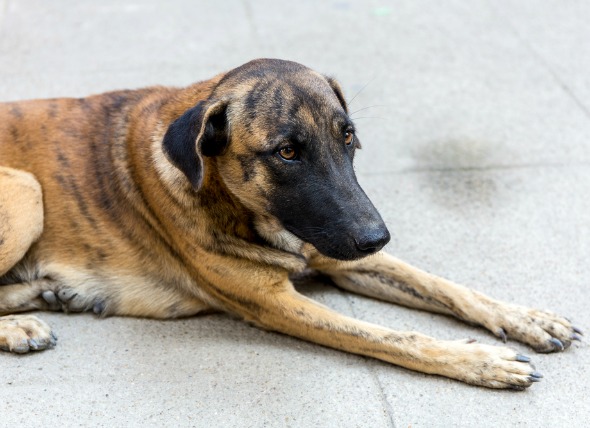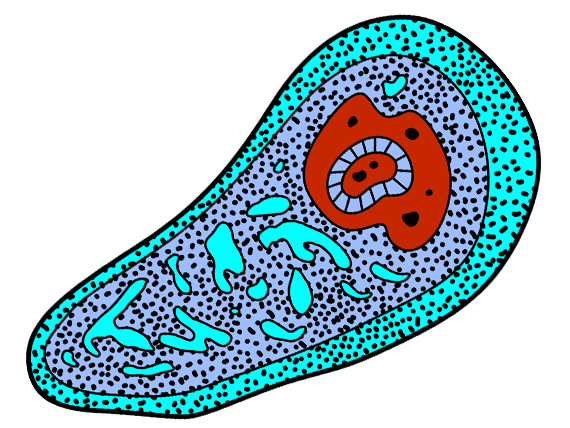

The thyroid gland is an essential gland in the body, producing a number of hormones, including T3 (liothyronine) and T4 (levothyroxine), both of which are required for normal metabolism in the body.
Hypothyroidism is a clinical condition resulting from a lowered production and release of T4 and T3 hormones by the thyroid gland. It is common in medium to large-sized dogs, with some being more predisposed than others. These breeds include Doberman pinschers, Irish setters, golden retrievers, great Danes, old English sheepdogs, dachshunds, miniature schnauzers, boxers, poodles, and cocker spaniels. It is also more commonly diagnosed in middle-aged dogs between the ages of 4-10 years. Neutered male dogs and spayed females are found to be at higher risk than intact dogs.
Your veterinarian will perform a thorough physical exam on your dog, taking into account the background history of symptoms and possible incidents that might have precipitated this condition. You will need to provide your veterinarian with a thorough history of your dog's health leading up to the onset of symptoms.
Finding the exact cause of hypothyroidism may require a thorough investigation. Routine laboratory testing will include a complete blood count, biochemistry profile, and urinalysis. Your doctor may be able to make an initial diagnosis based on the results of these tests, but endocrine testing is also an important panel for the diagnosis of hypothyroidism. The levels of T3 and T4 will be measured to determine if these are in the lower ranges. Radiographic studies may also be conducted to examine your dog internally for abnormalities that may be causing the dysfunction of the thyroid glands.
Good treatment options are available for treating hypothyroidism in dogs. The treatment is usually life-long, with carefully administered medication given in conjunction with dietary restrictions at home. The deficient hormones are given in synthetic form, with the dosage adjusted occasionally based on your dog's individual physical condition and progress. Most clinical symptoms will resolve after a few months, but only your veterinarian can determine whether your dog's medicine dosage should be adjusted or changed.
Conscientious compliance with the prescribed drugs and diet is required for successful therapy. Your veterinarian will adjust the dosage of the synthetic hormones as necessary for your dog, and will also monitor the usefulness of any medications that have been prescribed. To avoid complicating the condition, do not change the type or dosage of the drug yourself, and never give anything new to your dog without first consulting with your veterinarian. This caution includes the use of herbal remedies. Diet modifications, including a reduction in fat, are recommended during the initial phase of therapy. Most dogs respond well to therapy, with activity levels and mental alertness increasing significantly after only a relatively short time.
 Urinary Tract Obstruction in Dogs
Urinary tract obstruction is a medical emergency
Urinary Tract Obstruction in Dogs
Urinary tract obstruction is a medical emergency
 Skin Disease, Autoimmune (Pemphigus) in Dogs
Pemphigus in Dogs
Pemphigus is the general design
Skin Disease, Autoimmune (Pemphigus) in Dogs
Pemphigus in Dogs
Pemphigus is the general design
 Increased Urination and Thirst in Dogs
Polydipsia and Polyuria in Dogs
Polydipsia refers
Increased Urination and Thirst in Dogs
Polydipsia and Polyuria in Dogs
Polydipsia refers
 Fungal Infection (Yeast) in Dogs
Cryptococcosis in Dogs
Cryptococcosis is a locali
Fungal Infection (Yeast) in Dogs
Cryptococcosis in Dogs
Cryptococcosis is a locali
 Ameba Infection in Dogs
Canine Amebiasis
Amebiasis is a parasitic
Ameba Infection in Dogs
Canine Amebiasis
Amebiasis is a parasitic
Copyright © 2005-2016 Pet Information All Rights Reserved
Contact us: www162date@outlook.com